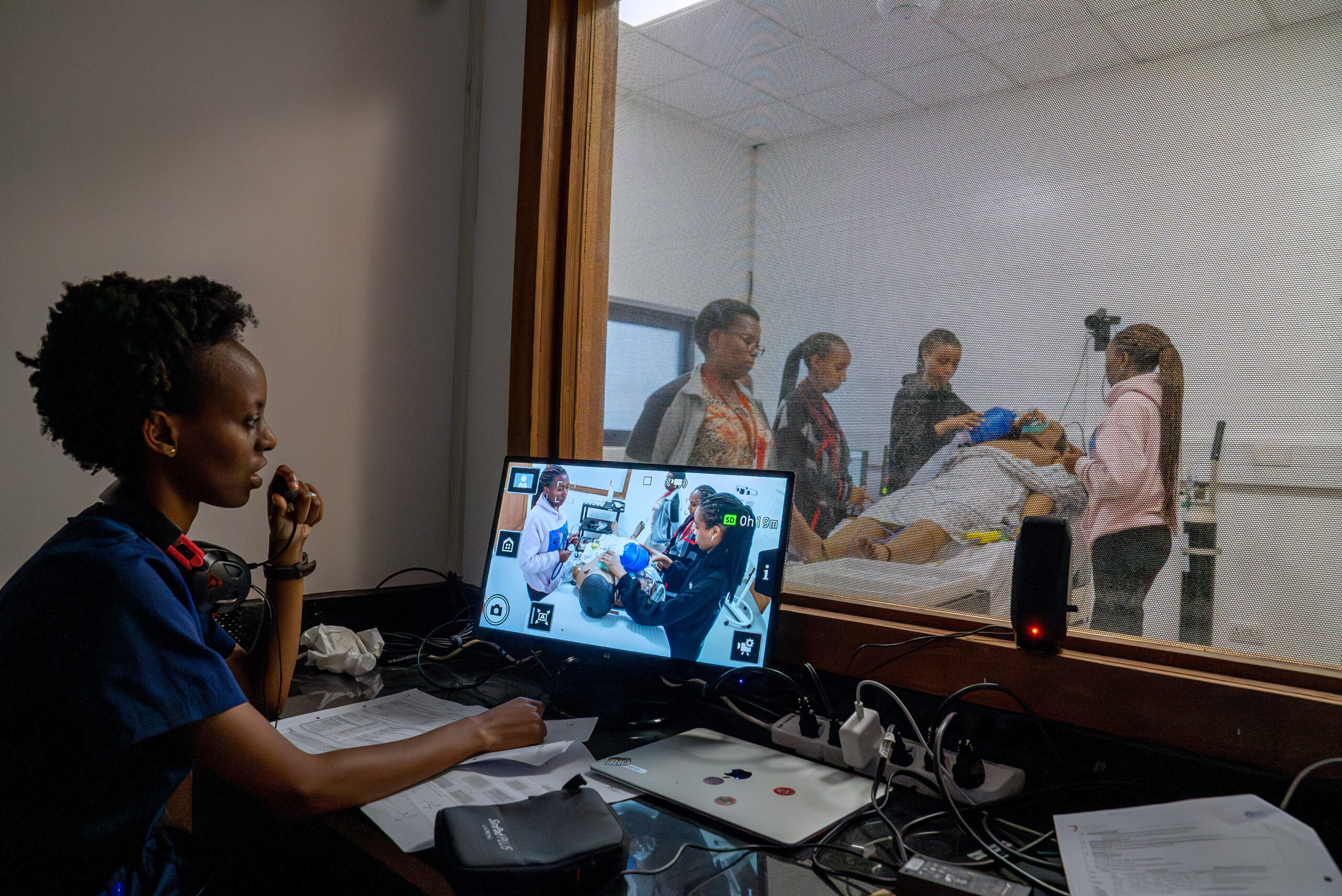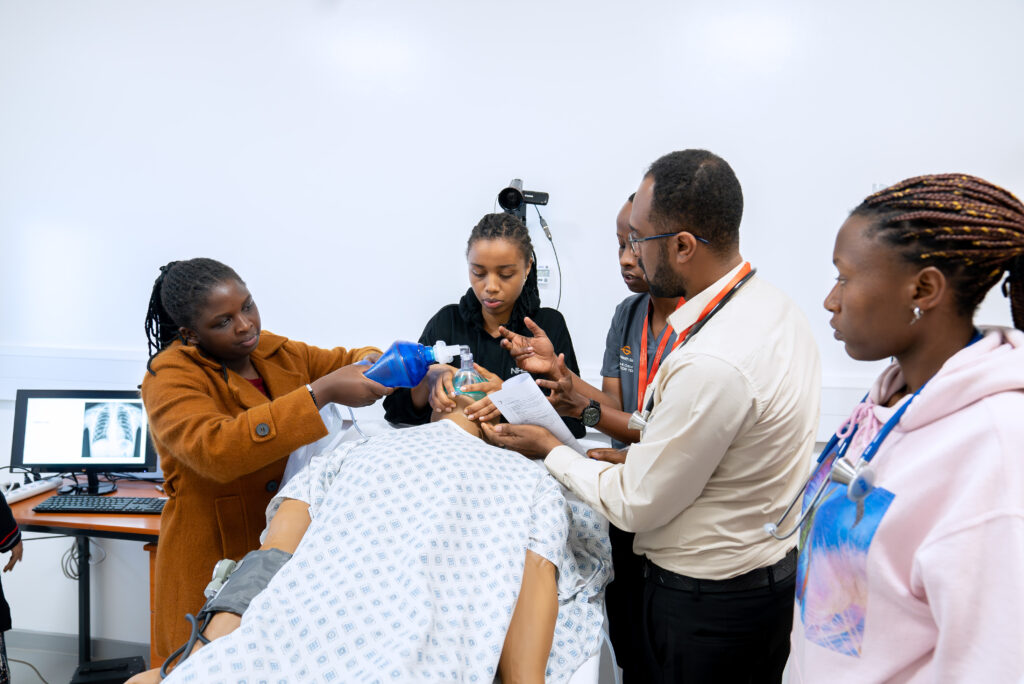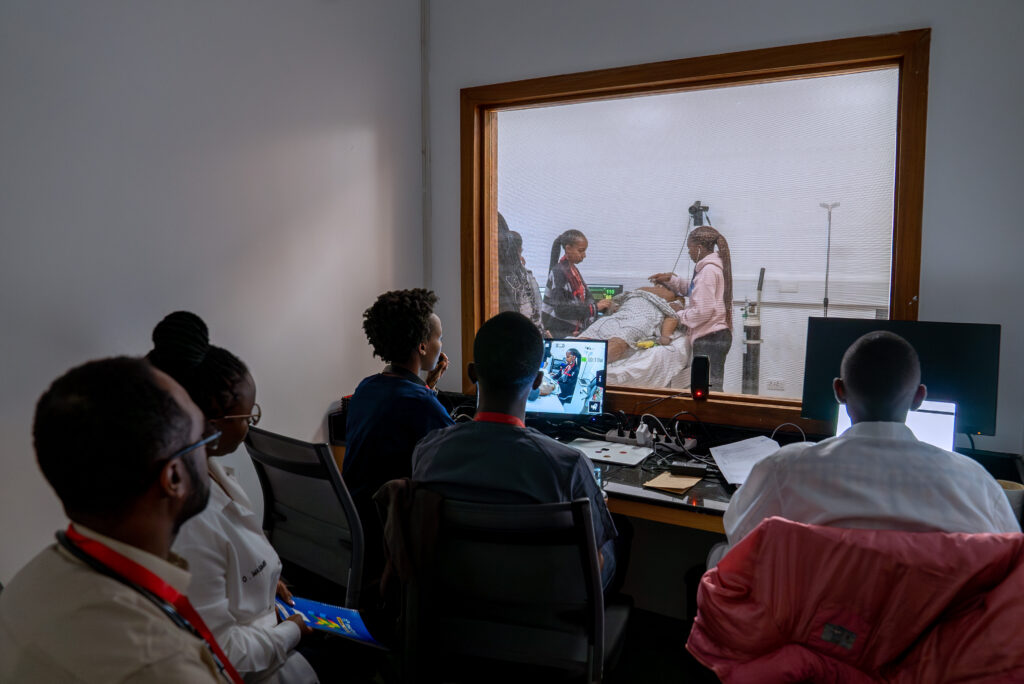Simulation and Skills Centre
November 8, 2024 2025-09-11 15:35Simulation and Skills Centre
Simulation and Skills Centre
The UGHE’s Simulation and Skills Centre is a critical component of the institution’s mission to radically change the way health care is delivered around the world. The center offers a safe, immersive environment where students and professionals can refine their clinical skills, to prevent adverse patient events and improve outcomes, improve decision-making, individually and in teams, and prepare for the challenges they will face in real-world medical settings.
The Centre is a well-equipped facility with two exam rooms, an anatomy room, four control rooms, two debrief rooms, a storage room, and a multipurpose skills room designed to replicate an operating room on one side and an Intensive Care Unit on the other side.
These rooms are used to deliver a wide variety of training scenarios, ranging from basic procedural skills to complex, multi-disciplinary emergency simulations. The Centre’s advanced audiovisual systems allow for real-time monitoring, debriefing, and feedback, enhancing the learning experience.
Simulation equipment and manikins
The Centre also houses modern simulation equipment and manikins:
- Four High-fidelity manikins: These include an obstetric manikin for maternal and neonatal simulations, two adult manikins for general medical and trauma training, and one newborn manikin for pediatric care.
- Two Anatomage tables: Virtual dissection tools that provide an immersive exploration of human anatomy
- Two Virtual reality headsets that deliver high-resolution, immersive training experiences through interactions with virtual patients
- Several task trainers and low-cost simulation models: Covering a range of essential procedures like IV insertion, chest tube insertion and airway management.
- One Cardiology patient simulator, two ventilator machines, one Universal Anesthesia Machine (UAM), Training and courses.


Training and courses
The UGHE Simulation and Skills Centre provides a comprehensive range of training programs, catering not only to UGHE’s medical students but also to practicing healthcare professionals.
These include:
- MBBS simulation training: Integrated into UGHE’s basic medical sciences and clinical curricula, UGHE’s simulation program emphasises real-world application, enabling students to develop both technical, non-technical (eg, communication) and critical thinking skills.
- Simulation Instructor Course: Designed to train and certify UGHE faculty and clinical/nursing educators at partners’ institutions in delivering and debriefing high-quality simulation-based education. This course, delivered annually, attracts participants from across the region and plays a key role in building local capacity for simulation-based training.
- Specialised training for practising doctors, nurses, and Non-Physician Anaesthetists (NPA): The centre regularly hosts specialised courses for healthcare workers from public hospitals across Rwanda. These trainings focus on improving clinical skills in areas such as emergency care (BLS, ALS), anaesthesia & critical care (Mechanical ventilation) and trauma care (ATLS).
Achievements and impact
The UGHE Simulation and Skills Centre consistently delivers high-impact learning, ensuring that both students and practicing professionals are well-prepared to manage complex medical scenarios with confidence and competence. The Centre’s emphasis on practical, hands-on learning has significantly enhanced the quality of medical education across the region, making it a key contributor to advancing healthcare training.
In recognition of its dedication to excellence, the centre was awarded the 2023 ASPIRE Certificate of Merit in Simulation by the Association for Medical Education in Europe (AMEE) at the AMEE conference in Glasgow. This international recognition highlights the centre’s commitment to innovation, quality in simulation-based education, and continuous faculty development. The centre remains focused on upholding rigorous standards in simulation training and advancing its impact within the healthcare education landscape.



